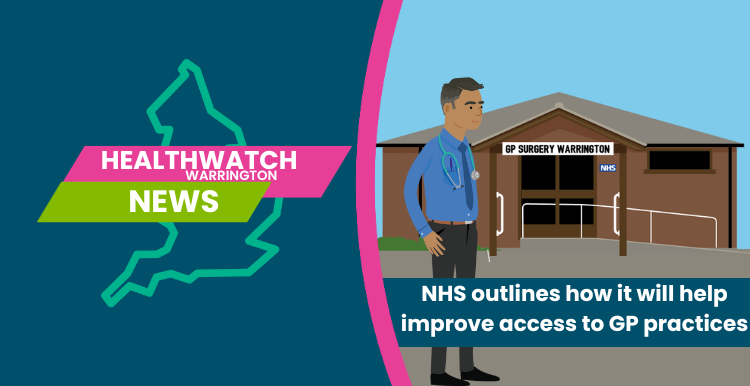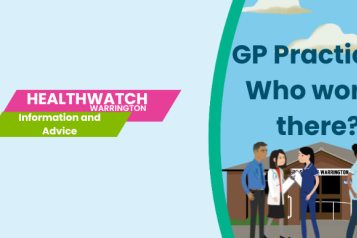NHS outlines how it will help improve access to GP practices across Cheshire and Merseyside
A new report sets out NHS Cheshire and Merseyside’s plan for improving access and making it easier and simpler for patients to access the care they need and supporting GP practices to manage demand and capacity through a range of additional measures. In 2023/24 this will be supported by a total of £90 million investment in primary care general practice and related measures contained in the plan.

There are a total of 349 GP practices across Cheshire and Merseyside, covering a population of 2.7 million people.
Building on national guidance, the Primary Care Access Improvement Plan will be presented to NHS Cheshire and Merseyside Integrated Care Board on 30 November 2023.
Key actions set out in the plan include:
- Supporting greater access to appointments though different measures including improved digital telephony systems.
- Facilitating greater use of the NHS App, which is being updated to increase functionality. As of September 2023, 84% of Cheshire and Merseyside practices already offer appointments through the NHS App, and the aim is to reach the national target of 90% by March 2024.
- Increasing the number of self-refer options available. Guided by clinical advice, and reviewing existing services, the NHS will look for ways to expand routes for patients to refer themselves for hospital and specialist care, where appropriate.
- Launch of the Pharmacy First service early in 2024, which will include providing assessment, advice and treatment options including the supply of some prescription medicines, for seven common conditions including earache and sore throat. The majority of Cheshire and Merseyside pharmacies already offer the blood pressure check service which is due to be relaunched nationally this winter and, for the first time across England, women will be able to get the contraceptive pill at their local pharmacy from December without needing to contact their GP first.
- Increasing and improving online access for patients, to ensure that functionality is fully realised, and patients have a good experience when using online tools to contact their practice.
- Supporting practices to promote care navigation, making it easier for people to contact their practice and to get a response on the same day, so that patients know how their request will be dealt with. Since May 2023 NHS Cheshire and Merseyside has had a local care navigation training programme. Approximately 220 practices have put staff through the local programme with more practices due to join, and 146 practices are participating in the national training programme.
- Building larger, multidisciplinary teams by employing more staff through the Additional Roles Reimbursement Scheme (ARRS), so that patients can see the right person to meet their needs. This includes staff such as nurses, physiotherapists, mental health practitioners, care coordinators and pharmacists. Across Cheshire and Merseyside 1,150 more staff are working in primary care than in 2019, helping to provide 20% more appointments than before the COVID-19 pandemic - including the same or greater numbers of face-to-face appointments.
- Cutting bureaucracy to improve the patient journey and experience, building on NHS Cheshire and Merseyside’s Consensus on the Primary Secondary Care Interface published in June 2022. The Consensus includes clinically led principles to guide reviews of patient pathways, encourage staff to keep the patient at the centre of their decision making and ensure that actions are completed by the most appropriate individual or team whether in primary or secondary care. The document covers a wide range of situations including prescribing, fit notes, diagnostics and more.
There are also plans to increase numbers of new GPs, improve retention rates and increasing the return of experienced GPs. Investment will also be made in wellbeing support for GP practice staff.
The full version of the plan will be available following the Board meeting, on the NHS Cheshire and Merseyside website.


